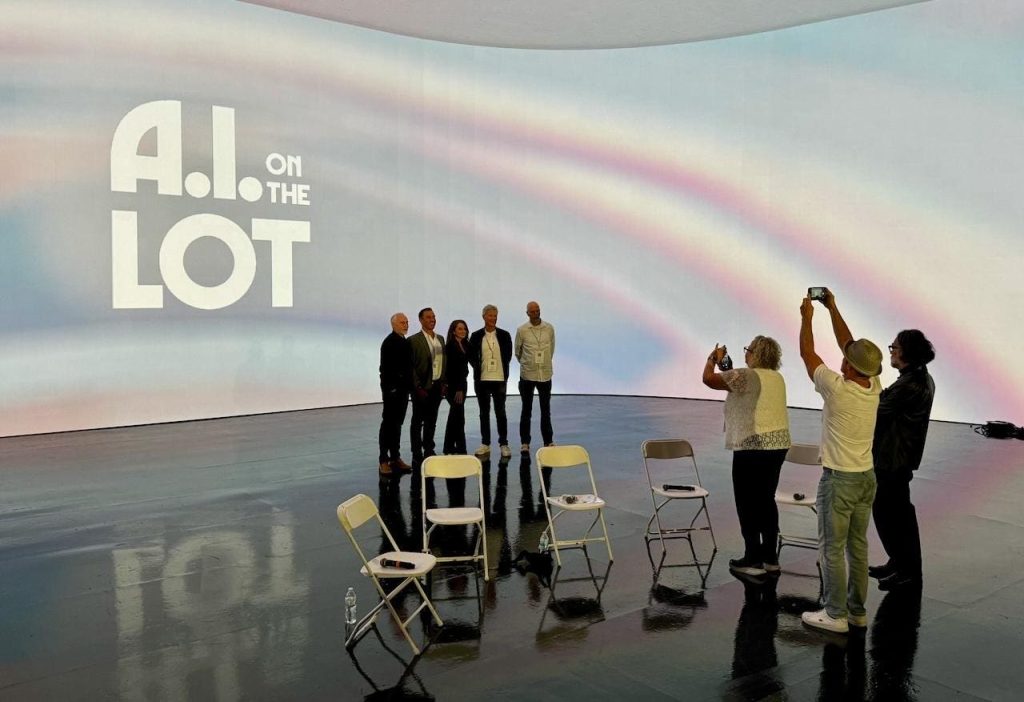The entertainment industry is currently experiencing a significant shift towards the utilization of artificial intelligence (AI) tools in the creation of movies and TV shows. This shift was evident at the recent “AI on the Lot” conference in Los Angeles, which drew 850 registrants eager to explore the possibilities offered by AI in their creative endeavors. Many professionals in the industry expressed their excitement about the potential of AI, with some citing its ability to streamline workflows and open up new creative opportunities.
AI tools have already made significant inroads in various sectors of the entertainment industry, including fashion photography, animation, and video editing. Companies like Adobe are incorporating AI capabilities into their software packages to generate still images, choose the best scene takes, and enhance video editing. Additionally, startups are offering specialized AI tools that can upscale video resolution, clone voices, and create sound effects, among other applications.
As the industry enters the third stage of the AI era, creators are looking for ways to integrate multiple AI programs to produce complete shows seamlessly. The availability of a wide range of AI tools, each with its own unique capabilities, offers creators a plethora of choices when it comes to leveraging AI in their projects. Filmmakers participating in projects like Our T2 Remake have utilized a variety of AI tools to enhance their creative output, incorporating tools for video editing, music creation, voice generation, and more.
While many in the entertainment industry are enthusiastic about the potential benefits of AI in enhancing creative processes, some have expressed concerns about the impact of AI on traditional creative collaborations. Directors like David Slade, known for his work on Netflix’s Black Mirror, highlight the importance of involving actors in the creative process and express concerns about the potential loss of collaborative opportunities with the increasing use of AI tools. Additionally, fears about job loss due to AI automation and its impact on the development of the next generation of industry professionals have also been raised.
Despite the optimism surrounding the possibilities of AI in the entertainment industry, there is a sense of cautious optimism among professionals. While AI tools offer the potential to streamline workflows, enhance creativity, and improve productivity, there are also concerns about the potential drawbacks, such as the loss of creative collaboration and job displacement. As the industry continues to embrace AI technologies, it is essential for creators to strike a balance between leveraging the benefits of AI and preserving the creativity and collaborative spirit that have long been the hallmarks of the entertainment industry.


